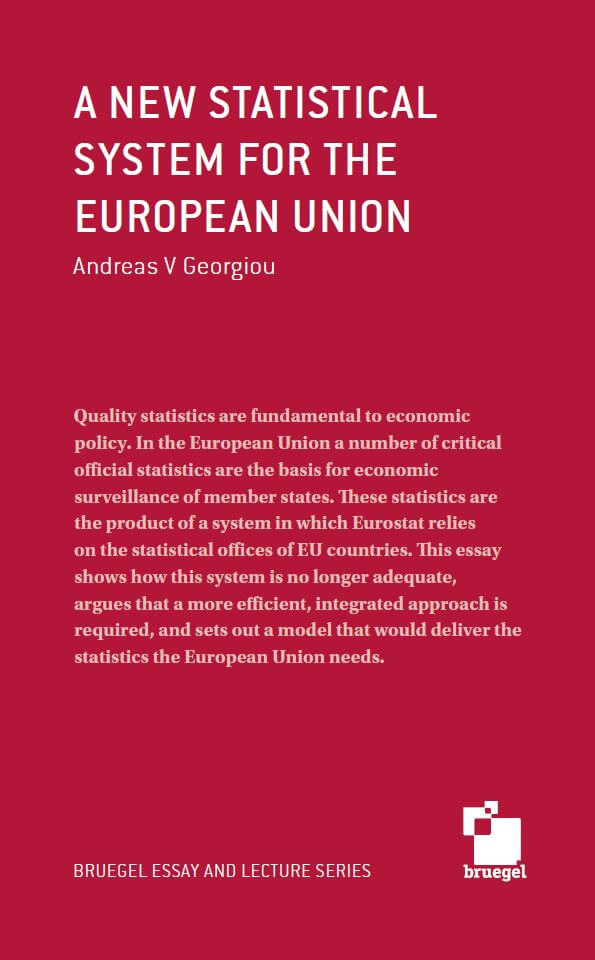Opinion
No lessons learned
With the drag from austerity, the debt-deflation spiral, and a weak international economy, where does the projected Greek rebound come from?
 This op-ed was originally published in the Handelsblatt
This op-ed was originally published in the Handelsblatt
In November 2003, former German Finance Minister Hans Eichel explained why the “deal” between Greece and its creditors is virtually certain to fail. Fending off the pressure then on Germany for more fiscal austerity in an economic recession, Eichel wrote in a Financial Times op-ed: “A policy geared solely to attaining quantitative consolidation targets in the short term runs the risk not only of curbing growth but also of increasing debt.”
Eichel’s theorem says that the latest Greek government, even if stable, will not overcome the illogic of the creditors’ program. Growth will be slower and deflation stronger than anticipated. The debt burden will continue to increase.
Eichel’s theorem has proven stunningly durable through the Great Recession: persistent austerity is counterproductive, the more so the weaker the economy is. Everywhere, austerity has dragged down growth. Greece, which has undertaken the most severe austerity, has experienced the deepest economic contraction. Even the glimmer of Greek economic growth in 2014 came during a pause in austerity.
By most estimates, Greece is running a small primary fiscal deficit: government expenditures (not counting interest payments) exceed receipts. Achieving the creditors’ primary surplus target of 3.5% of GDP in three years will cause the economy to contract. But the projections claim that Greece will resume growth.
The projections have a deeper disdain for economic relationships. In 1933, economist Irving Fisher explained that when debt levels are high, the repayment of debt increases the debt burden. In the effort to repay debt, consumption and investment are reduced, which causes prices and wages to fall. But because the debt obligations do not decrease, the burden of repayment increases. Greece has been in a debt-deflation cycle for the past two years. Greek prices and wages are declining—and while that may help in the long-run—for now, the debt-to-income ratios are being pushed up. The additional austerity will reinforce that tendency. Yet, the projections assume that prices will increase and help reduce the private and public debt burdens.
It gets worse. When, in 2003, Germany was freed of the shackles of fiscal austerity, world trade also zoomed up. For the four years, 2004-7, world trade growth averaged 9% a year. The claim to a German “miracle” is based on two years of 3.5% annual growth in 2006-7 amidst that buoyant world economy. Today, Greece is embarking on another round of austerity with world trade growth under 3% a year. The U.S. Federal Reserve, in its decision to not raise interest rates last week, emphasised how fragile the global economy is. The IMF has lowered its forecasts of world GDP growth and trade three times since the start of the year.
With the drag from austerity, the debt-deflation spiral, and a weak international economy, where does the projected Greek rebound come from? The magic is said to lie in the elixir of structural reforms. That may be so, but make no mistake, there is no evidence that structural reforms deliver with the strength and speed assumed in the Greek projections.
The euro area has lived off one economic myth after another, first the virtues of a single currency for disparate European nations, then the redeeming powers of fiscal austerity, and now structural reforms as the solution of all economic ills. These myths are sustained by a deep groupthink among European “elites,” who validate each other’s strongly held beliefs.
When, in 2003, Germany strong-armed other euro area members into suspending the fiscal rules that would have gratuitously shamed a struggling Germany, Chancellor Gerhard Schroeder cynically, but correctly, called that a “wise” decision. But such is pressure to conform to group norms that Schroeder has since apologised for breaking the unreasonable rules. Another convert is the IMF’s former chief economist, Olivier Blanchard. Having won the intellectual battle on the costs of austerity, he walked away from his research findings and called, instead, for more structural reforms in Greece.
The “deal” only postponed the hard questions. For Germany and other creditors, debt relief creates intolerable risks. But for Greece, driblets of debt relief cannot be merely a prize for more counterproductive austerity. Debt relief is required up front to lower the primary surplus goal to 0.5% of GDP.
If Greece is ultimately forced to leave the eurozone, the creditors will bear larger losses than if they provide relief now. And Grexit will irretrievably crack the fractured union. Lessons not learned must be relived. The Greeks will bear more pain, the creditors will see less of their money. That ultimately is the Greek tragedy.
Republishing and referencing
Bruegel considers itself a public good and takes no institutional standpoint.
Due to copyright agreements we ask that you kindly email request to republish opinions that have appeared in print to [email protected].










